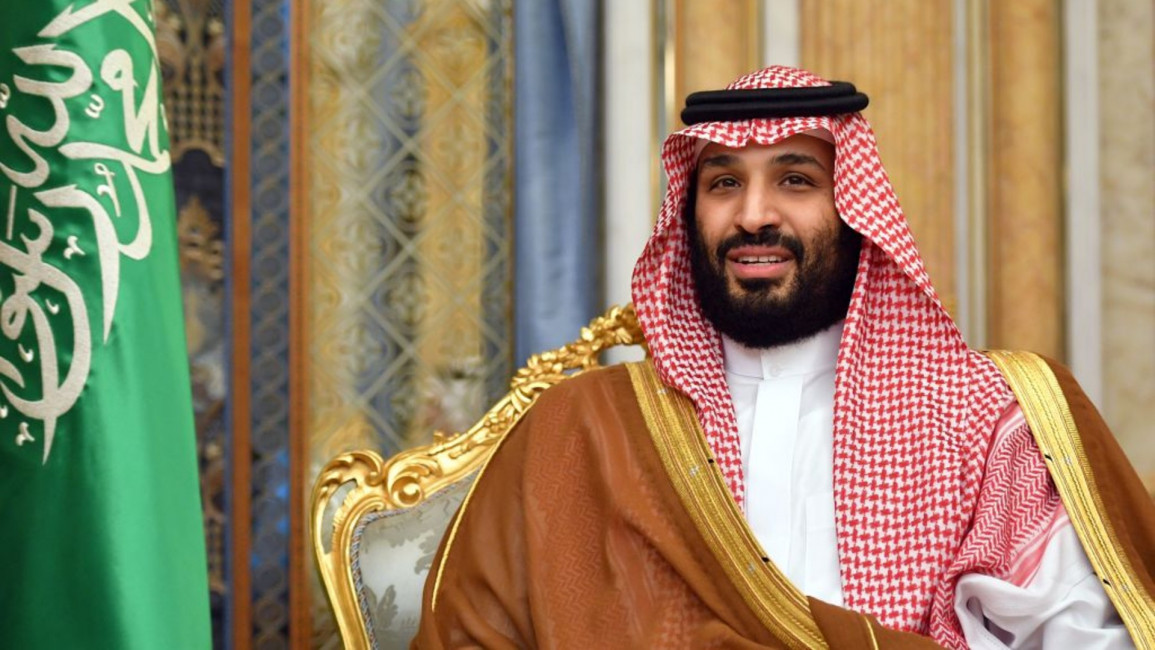
Under guise of anti-corruption sting, Saudi crown prince finds new royal targets
Prince Fahd has been replaced by Mutlaq bin Salim, the deputy chief of staff, at the recommendation of MbS, according to state media. In addition, four other military officers have been put under investigation as part of an effort on the part of the corruption crackdown.
Rooting out corruption, particularly among members of the ruling family, has been on the agenda of Crown Prince Mohammed bin Salman (MbS) since he came to power as crown prince in 2017. Nazaha, the Control and Anti-Corruption Authority, has been instrumental in collecting and documenting incidents of corruption, including through a smartphone application. The latest arrests represent efforts to investigate what Nazaha calls "suspicious financial transactions at the defence ministry."
While corruption is undoubtedly an issue worthy of attention in Saudi Arabia, it is also a convenient charge to levy against political rivals since it is so universally opposed, at least publicly. The most recent arrests, then, can be seen to demonstrate both the ability of MbS to get his father's continued support for anti-corruption sweeps, even when they involve close family members, and MbS's power to increase central government control over the defence sector by extending his anti-corruption drive to officials in the defence ministry.
Of course, MbS has served as defence minister since 2015 and so has long been involved with decision-making in Yemen and more broadly across the ministry, yet this is the first anti-corruption sweep of the type that MbS has used to co-opt other segments of Saudi society.
 |
This is the first anti-corruption sweep of the type that MbS has used to co-opt other segments of Saudi society |  |
Since MbS came to power, he has demonstrated his ability and indeed his intention to centralise what were once relatively autonomous centres of power within Saudi Arabia under his control. He did so with the once-powerful state-linked clerical community by stripping the religious police of the power to arrest and by continuing with his plans for social liberalisation, including granting women the right to drive and arranging a variety of large social events and concerts, despite vocal concerns about such moves.
Twitter Post
|
MbS also silenced powerful independent clerics who were not part of the official state-run ulama by arresting over 30 of them in September 2017 without explanation. MbS then demonstrated his power over the business community through his famous corruption crackdown in the Riyadh Ritz Carlton in November 2017, which resulted in the recovery of more than $100 billion from dozens of members of the Saudi business elite, including some members of the ruling family.
Read more: Detained Saudi activist Loujain Alhathloul's health 'deteriorating' amid hunger strike over ban on family contact
Also as part of the corruption sting, last month, a number of officials, including governors of Umluj and Al-Wajh and employees of the interior ministry were arrested on corruption charges related to ongoing tourism projects.
The largest crackdown specifically on ruling family members for corruption-related allegations took place earlier this year, in March 2020, when more than 298 Saudi officials and three senior princes, including former crown prince Mohammed bin Nayef and King Salman's only living brother Prince Ahmed bin Abdulaziz, were detained on corruption charges.
Human Rights Watch said the arrests raised concerns about human rights and due process. The arrests also represented the ability of MbS to once again centralise power in his hands to ensure that no senior members of the ruling family would be able to challenge him.
After this series of politically motivated arrests, including those of activists like Loujain al-Hathloul who was outspoken about the ban on women driving, the Saudi diaspora has become more vocal, and members of that population face the threat of MbS's wrath.
 |
The arrests also represented the ability of MbS to once again centralise power in his hands |  |
Most famously, of course, US-based Saudi journalist Jamal Khashoggi was killed at the Saudi consulate in Turkey in October 2018, an event that the CIA acknowledged was directed by MbS himself. More recently, dissidents in Norway and Canada have claimed to have been threatened if they do not return home.
Given the latest arrests and the continued use of the mantle of anti-corruption to justify them, it is fair to say that MbS has been successful in co-opting potential rivals within the ruling family under the guise of fighting corruption – a cause that is popular among many Saudis.
Dr Courtney Freer is a research fellow at LSE Middle East Centre.
Follow her on Twitter: @CourtneyFreer
Have questions or comments? Email us at: editorial-english@alaraby.co.uk
Opinions expressed in this article remain those of the author and do not necessarily represent those of The New Arab, its editorial board or staff.




